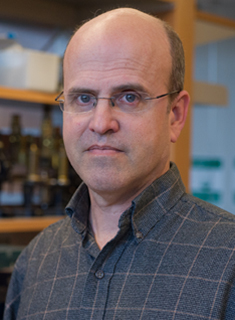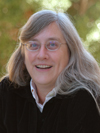
Embryo drawing is the illustration of embryos in their developmental sequence. In plants and animals, an embryo develops from a zygote, the single cell that results when an egg and sperm fuse during fertilization. In animals, the zygote divides repeatedly to form a ball of cells, which then forms a set of tissue layers that migrate and fold to form an early embryo. Images of embryos provide a means of comparing embryos of different ages, and species. To this day, embryo drawings are made in undergraduate developmental biology lessons.
The theory of recapitulation, also called the biogenetic law or embryological parallelism—often expressed using Ernst Haeckel's phrase "ontogeny recapitulates phylogeny"—is a historical hypothesis that the development of the embryo of an animal, from fertilization to gestation or hatching (ontogeny), goes through stages resembling or representing successive adult stages in the evolution of the animal's remote ancestors (phylogeny). It was formulated in the 1820s by Étienne Serres based on the work of Johann Friedrich Meckel, after whom it is also known as Meckel–Serres law.

An embryo is an initial stage of development of a multicellular organism. In organisms that reproduce sexually, embryonic development is the part of the life cycle that begins just after fertilization of the female egg cell by the male sperm cell. The resulting fusion of these two cells produces a single-celled zygote that undergoes many cell divisions that produce cells known as blastomeres. The blastomeres are arranged as a solid ball that when reaching a certain size, called a morula, takes in fluid to create a cavity called a blastocoel. The structure is then termed a blastula, or a blastocyst in mammals.

The Marine Biological Laboratory (MBL) is an international center for research and education in biological and environmental science. Founded in Woods Hole, Massachusetts, in 1888, the MBL is a private, nonprofit institution that was independent for most of its history, but became officially affiliated with the University of Chicago on July 1, 2013. It also collaborates with numerous other institutions.

Conrad Hal Waddington was a British developmental biologist, paleontologist, geneticist, embryologist and philosopher who laid the foundations for systems biology, epigenetics, and evolutionary developmental biology.

Jane Ellen Buikstra is an American anthropologist and bioarchaeologist. Her 1977 article on the biological dimensions of archaeology coined and defined the field of bioarchaeology in the US as the application of biological anthropological methods to the study of archaeological problems. Throughout her career, she has authored over 20 books and 150 articles. Buikstra's current research focuses on an analysis of the Phaleron cemetery near Athens, Greece.

Nicole Marthe Le Douarin is a developmental biologist known for her studies of chimeras, which have led to critical insights regarding higher animal nervous and immune systems.

Eugenia María del Pino Veintimilla is a developmental biologist at the Pontificia Universidad Catolica del Ecuador in Quito. She was the first Ecuadorian citizen to be elected to the United States National Academy of Sciences (2006). She was awarded the 2019 Prize of the Latin American Society for Developmental Biology for her strong contributions to research in Ecuador, and in general to promoting Developmental Biology in Latin America.
John Tyler Bonner was an American biologist who was a professor in the Department of Ecology and Evolutionary Biology at Princeton University. He was a pioneer in the use of cellular slime molds to understand evolution and development over a career of 40 years and was one of the world's leading experts on cellular slime moulds. Arizona State University says that the establishment and growth of developmental-evolutionary biology owes a great debt to the work of Bonner's studies. His work is highly readable and unusually clearly written and his contributions have made many complicated ideas of biology accessible to a wide audience.
Viktor Hamburger was a German-American professor and embryologist. His collaboration with neuroscientist Rita Levi-Montalcini resulted in the discovery of nerve growth factor. In 1951 he and Howard Hamilton published a standardized stage series to describe chicken embryo development, now called the Hamburger-Hamilton stages. He was considered "one of the most influential neuroembryologists of the twentieth century".
James R. Griesemer is an American professor of philosophy at the University of California, Davis in Davis, California specializing in philosophy of biology.
Brigid L. M. Hogan FRS is a developmental biologist noted for her contributions to mammalian development, stem cell research and transgenic technology and techniques. She is currently a Professor in the Department of Cell Biology at Duke University, Born in the UK, she became an American citizen in 2000.
Joe Cain is a historian of science who specialises in the history of evolutionary biology. He is currently Professor of History and Philosophy of Biology at University College London, and from 2011 to 2019 he was Head of Department of UCL's Department of Science and Technology Studies. He was also editor of BSHS Monographs, a series published by the British Society for the History of Science.
Brian Keith Hall is the George S. Campbell Professor of Biology and University Research Professor Emeritus at Dalhousie University in Halifax, Nova Scotia. Hall has researched and extensively written on bone and cartilage formation in developing vertebrate embryos. He is an active participant in the evolutionary developmental biology (EVO-DEVO) debate on the nature and mechanisms of animal body plan formation. Hall has proposed that the neural crest tissue of vertebrates may be viewed as a fourth embryonic germ layer. As such, the neural crest - in Hall's view - plays a role equivalent to that of the endoderm, mesoderm, and ectoderm of bilaterian development and is a definitive feature of vertebrates. As such, vertebrates are the only quadroblastic, rather than triploblastic bilaterian animals. In vertebrates the neural crest serves to integrate the somatic division and visceral division together via a wide range novel vertebrate tissues.
Alessandro Minelli is an Italian biologist, formerly professor of zoology in the Faculty of Mathematical, Physical and Natural Sciences of the University of Padova mainly working on evo-devo subjects.
Alfred Richard Wilhelm Kühn was a German zoologist and geneticist. A student of August Weismann, he was one of the pioneers of developmental biology. At a period when biology was largely descriptive, he collaborated with zoologists, botanists, organic chemists, and physicists conducting interdisciplinary studies, examining sensory biology, behaviour, and biochemistry through experiments on organisms.
Jane Marion Oppenheimer (1911–1996) was an American embryologist and historian of science.

Michael R. Dietrich is a professor of the history and philosophy of science at the University of Pittsburgh. His research concerns developments in twentieth century genetics, evolutionary biology, and developmental biology, with a special emphasis on scientific controversies.
Scott Frederick Gilbert is an American evolutionary developmental biologist and historian of biology.
John Philip "Trink" Trinkaus was an American embryologist and one of the world's leading experts on in vivo cell motility.








